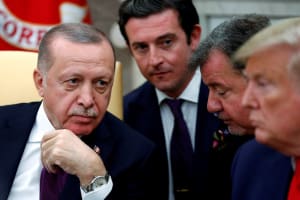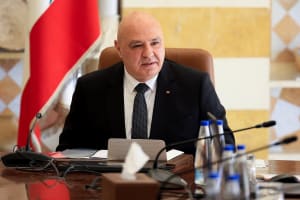International Stabilization Force in Gaza to be formed by Muslim coalition, with US support

The U.S.-backed International Stabilization Force (ISF), established to help stabilize post-war Gaza, is expected to be composed primarily of troops from Arab and Muslim-majority nations. Although the Trump administration is leading the initiative, senior diplomatic sources say the force will likely exclude Western soldiers. According to these officials, Western diplomats believe the residents of Gaza would be more receptive to Arab and Muslim troops, viewing them as less representative of “occupation” than Western forces.
The ISF headquarters is slated to be established in Kiryat Gat, a southern Israeli city near the Gaza border. Senior Western diplomatic sources, speaking on condition of anonymity, acknowledged that assembling the international force is proving to be a “politically and technically complex” undertaking.
“This won’t be a typical UN blue-helmet mission,” an unnamed diplomat source stated. “It will be a regional peace force with a UN mandate, armed and authorized to use force against any militant elements threatening civilians – Palestinian or Israeli alike.”
Many countries typically seek a UN mandate before deploying troops to a conflict zone; however, the ISF faces multiple challenges. China and Russia could potentially use their UN Security Council veto to block the mandate as a diplomatic retaliation against the United States.
“Putin’s tactic is to complicate every process – they see it as leverage,” the diplomat assessed.
Furthermore, given its past negative experiences with UN forces, Israel insists on maintaining security control to prevent terrorists in Gaza from attacking Israeli soldiers or civilians.
While Western troops are unlikely to be deployed inside Gaza, Western nations are expected to support the International Stabilization Force with military intelligence, command assistance and logistics management.
Israeli Prime Minister Benjamin Netanyahu visited the U.S.-led command center in Kiryat Gat on Wednesday.
“We decide on every security matter, but we cooperate. Our goal is a different Gaza – one that no longer threatens Israel,” Netanyahu said. He stressed that Israel and the United States share the primary goals of dismantling Hamas’ military capabilities and demilitarizing the Gaza Strip.
The composition of the stabilization force is still unclear. The Politico news site reported earlier this month that Pakistan, Azerbaijan and Indonesia are likely to contribute troops to the stabilization force in Gaza. Israel is expected to favor the participation of troops from Azerbaijan, a nation with which it shares close diplomatic and security ties. Neither Pakistan nor Indonesia currently maintains official diplomatic relations with Israel.
Last month, Indonesian President Prabowo Subianto told the UN General Assembly that Indonesia was prepared to deploy approximately 20,000 of its troops to Gaza.
"If and when the UN, the Security Council, and this General Assembly decide, Indonesia is ready to deploy 20,000 or even more of our sons and daughters to establish peace in Gaza or elsewhere. In Ukraine, Sudan, Libya –wherever peace needs to be established, wherever peace needs to be defended," Subianto pledged.
In contrast, Jordan’s King Abdullah earlier this week said that the country is “too close” to the conflict to deploy troops to Gaza. He argued that the ISF should play a more supportive function for the local police force in Gaza.
“Peacekeeping is that you’re sitting there supporting the local police force, the Palestinians, which Jordan and Egypt are willing to train in large numbers, but that takes time,” King Abdullah told the BBC. “If we’re running around Gaza on patrol with weapons, that’s not a situation that any country would like to get involved in,” he added.
However, the Jordanian king did not elaborate on the composition of a local police force in Gaza, which is currently controlled by the Hamas terrorist organization. The Israeli government has also ruled out a role for the Palestinian Authority due to its pay-for-slay policy, a program that provides monthly stipends to Palestinians convicted of terror attacks and to the families of those killed while carrying them out.
Israeli officials argue that this policy directly incentivizes violence against Israelis and Jews, making the PA an unsuitable partner in any future security or governance arrangement for Gaza.

The All Israel News Staff is a team of journalists in Israel.
You might also like to read this:















